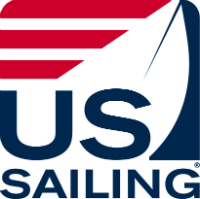
It would seem to me that one of the most frightening circumstances to be caught in is a boat afire. It is loaded with high-octane fuel creating toxic smoke; using water to fight the fire can sink the boat; leaving the boat may entail going into another hostile environment – cold and unforgiving water. It doesn't sound like there are many, if any, good alternatives. Also, fire prevention professionals quote that on average a fire will double in area every 5 minutes. At that rate, it wouldn't take long to engulf an entire boat. So, time is of the essence, and it is highly unlikely that anyone can get to you in time to assist in the fire suppression. You and your crew, most likely, are it.
Causes of Fires
According to many studies such as those conducted by entities such as BOAT/US, surprisingly, the engine is not the most likely source of fires on boats – electricity is. More than half of boat fires (55%) start with wiring or appliance failures. Next come fires started by an overheated engine but they are less than half as likely (24%). Less than 10% of boat fires (8%) start with a fuel leak. Of course, those can reach catastrophic proportions if the fire ignites the fuel tank itself. The rest is a mixed bag of "miscellaneous" – dropped match, stove spills, flare "slag" landing on the boat, etc.
An electrical fire such as the one that starts from a frayed/chafed wire is very different than one which is fed by a malfunctioning inverter or generator. The first is going to act like someone was smoking in bed – material is aflame but not being fed by the electricity itself. But it counts as the cause of the fire.
Types of Fire Extinguishers and Who Needs What
First, fire themselves are classified into "A", "B" and "C" types. (There is a type "D" for chemical/combustible metals fires such as would be created by the magnesium in a flare but I have never seen it successfully used before the flare involved surrounding materials – get the flare off the boat [let the fish below deal with it] and then deal with the fire.) The easiest way to remember what they are used for is thus:
- "A" – the fire creates ash – paper, bedding, clothes, wood, etc…
- "B" – the subject afire can boil – "POLs" or petroleum, oils and lubricants…
- "C" – a charge runs through it – electronic equipment…
As to fire extinguishers themselves, the rules changed on April 20, 2022 and you can find the newly published regulations for fire protection for recreational vessels at
https://www.federalregister.gov/documents/2021/10/22/2021-22578/fire-protection-forrecreational-vessels#sectno-reference-175.320 .
On note, if your fire extinguisher has a date of manufacture stamped on the bottle (example: "05" means 2005), and it is older than 12 years, the extinguisher is considered expired and must be removed from service. Look for wording on the bottle stating, "This product must be removed from service within 12 years after date of manufacturing".
How many do you need? Here it is:

Where Do I Keep The Extinguishers?
Where I can get to them – plus the sleeping berths. If you awake to a fire, you may have to fight your way out of it. Every other extinguisher should be kept in a convenient place – near the galley but not in it, near the engine but not within the engine space, etc. Use common sense.
Boats Afire – Now What!!??
Act quickly. If you have help aboard, use it. Have someone turn the boat so the fire is down wind and proceed ahead as slowly as possible to maintain steerage. This will buy you time as the fire can't fight its way upwind easily. And have the helmsman call the USCG on VHF-16. Get the "rescue starts now" clock going. While reaching for the fire extinguishers, yell – "everybody into life-jackets!" If you do have to abandon ship, you are prepared. Aim the fire extinguisher at the base of the flame, not the flames themselves. You are seeking to smother the source of the fire, not the flames per se. Move the fire extinguisher back and forth across the source of the flame to spread the coverage. If the fire has a source such a flowing charge or liquid, and you can get to a shut-off valve, shut it off and starve the fire.
And be sure to call the US Coast Guard – ASAP. Get the "rescue starts now" clock started as soon as possible. They won't get there in time to stop the fire – but they will task someone or something to get there in time to fish you out of the water if you must abandon ship. Be sure to let the USCG know how many people are aboard – they will look for that many people in the water. No one gets left behind.
If you are interested in being part of USCG Forces, email me at JoinUSCGAux@aol.com or go directly to the US Coast Guard Auxiliary "Flotilla Finder" at http://www.cgaux.org/units.php.












